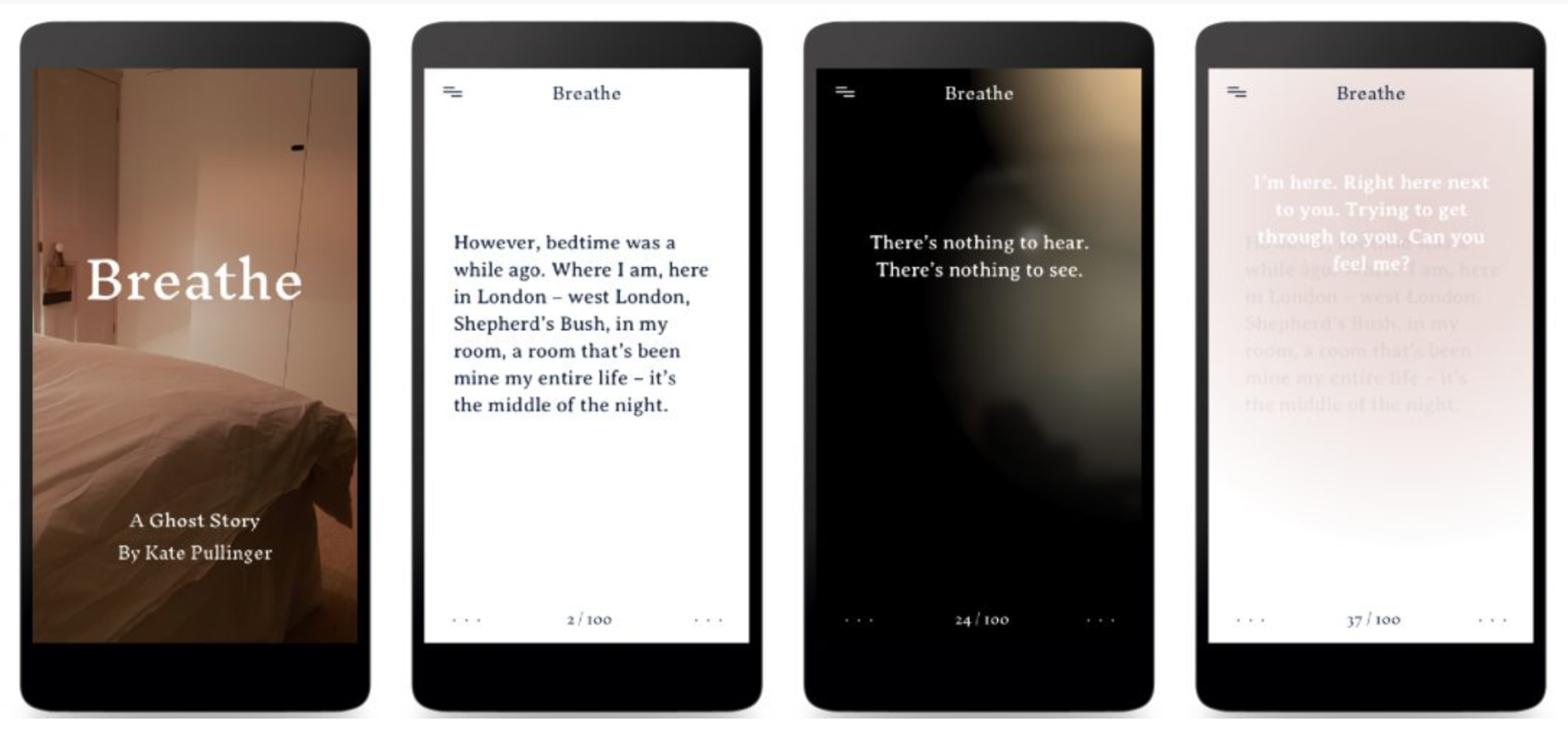Ambient Literature – The Route to a New Reading Experience?

The Ambient Literature project, to quote from its website, is:
‘… a two-year collaboration between UWE Bristol, Bath Spa University, the University of Birmingham and development partners Calvium, Ltd. established to investigate the locational and technological future of the book. Funded through a grant from the Arts and Humanities Research Council, the project is focused on the study of emergent forms of literature that make use of novel technologies and social practices in order to create robust and evocative experiences for readers.’
In essence, the project has developed interactive reading experiences, designed to be enjoyed on a smartphone, which combine an author-written narrative with the transient, ambient experiences of the reader.
So, by allowing access to your phone’s camera, location, the time and date, current news, weather and an awareness of the surrounding geography, a unique story can be created, tailored to the consumer’s current experience.
One of the many possibilities opened up is the layering of events that have occurred at the same location at different dates in history. Arguable, by requesting permission to allow access to other data on your device, it would be possible to include your music, friends, photographs, places visited, calendar, references to political and religious and social opinions. In fact any information stored or linked to on your phone could be incorporated into the story and further enriched by allowing the ‘reader’ to choose alternative paths of story direction. Further developments could include additional external sources, such as film and sound archives, including commercial material.
I would recommend listening to the sample stories included on the website, to get a feel for the possibilities. It can certainly create an enhanced awareness and mindfulness of familiar surroundings and offers a personal experience distinct from that of other readers of the same work.
My first thought was that, although interesting and novel, the idea would be of limited interest to publishers as it would not be capable of generating large sales. After further consideration, I can see that for best-selling works, readers could well welcome a personalised copy which they could share and compare with the experience of their friends.
It could also be used for product placement and advertising, not to mention political and other canvassing, including opportunities for ‘big brother’ to watch us.
Something to keep an eye on.